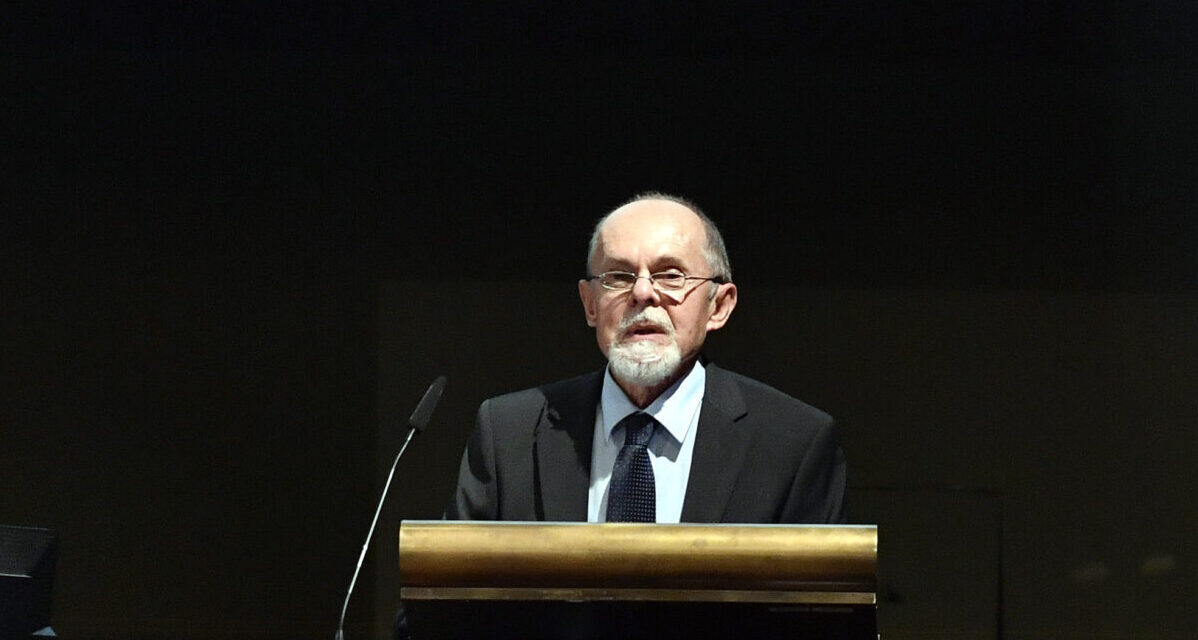We could not stay out of the world wars that led to Mohács and Trianon either, but learning from this, we must be able to prevent a third national tragedy of similar depth from occurring. Written by László Bogár.
In an interview, the Hungarian Prime Minister said that the current conflicts are perhaps the first clashes of the third world war, and that our main aspiration can only be for us Hungarians to stay out of it.
Since there is no exact definition of world war as a concept, it would be worthwhile for us to ponder why and how the power tectonic causes lead to world war, and whether it is even possible, and if so, how, to stay out of it.
Today, naturally, we talk about the first and second (and now third) world wars, but the term itself was only born in 1942, when it became clear that the war had truly become global with the American-Japanese conflict. And at the same time, it also became evident that the wave of conflict that erupted in 1914, which until then was simply referred to as the "Great War", was the first, so the conflict that began in 1939 but "only" intensified in 1941-42 was the second in a row.
But the two world wars of the 20th century (or at least the appearance of two) world wars are actually a single "thirty-year" war (with a two-decade truce in the middle),
and if we open the historical optics, it also becomes visible that the "world wars" are "world" wars because, in terms of power tectonics, they are clashes of world empires. And in this sense, every change of world empire inevitably leads to a world war.
The modern West was never a unified empire, but rather functioned as a complex of nation-states regularly competing with each other for dominance within the West - and what this has meant over the past half-millennium, for domination over the world. It is important to add to all that
the ruling elite of the world empire, if it happened, also brutally looted the pedestal of its own nation-state, just as the world empire "superstructure" called the United States of America is now doing with its nation-state.
Portuguese, Spanish, Dutch, French, British and, in the last century, American elites held the status of world empire, and the inevitable change of world empire every century was always accompanied by a world war.
Except for the first during the Portuguese-Spanish "changing of the guard", when VI. Pope Alexander "peacefully" divided the world into Spanish and Portuguese parts, and thus the world war became avoidable. At that time, liberal democracy was not yet at its peak, so the world was not asked whether it wanted to be "divided" into Spanish and Portuguese parts, which then resulted in a number of rather peculiar consequences.
However, the next change of world empire, the decline of the Spanish Empire and the rise of the Dutch world empire, already resulted in a multidimensional world war, this was the Thirty Years' War between 1618 and 1648, which, compared to Europe at the time, brought with it greater destruction in terms of human lives and material wealth than the "thirty years" war of the 20th century between 1914 and 1945.
The fall of the Netherlands was followed by the French attempt at world empire from the Sun King to Waterloo, which also ended with a world war with millions of deaths and paved the way for the rise of the British Empire.
The "made up" conflicts referred to as the First and Second World Wars were necessary because the German imperial elites believed that the new century was the century of the German world empire and not America's.
And since they were not educated from the first stage of the war, they unsuspectingly walked into the trap set for them by the global power system with the feigned authorization of their "third" empire.
With a similar logic, they also tricked them into a trap and took down the Russian world imperial aspirations. But according to the signs, after a century, the fourth generation of the imperial elites is showing itself as a degeneration that makes the fall inevitable, so this seems to be happening to America as well.
But while during the world wars accompanying the previous world empire changes, it was clear who the next world empire would be (apart from the historically frivolous attempts of the Germans and Russians), now the situation is more uncertain and unpredictable than ever before.
It is not that one of the world empires of the modern West is replaced by a new world empire built on another Western nation-state, but something "different".
But we can only formulate rather uncertain assumptions about what this "otherness" is. We cannot rule out that the West, the entire world system of Westernized modernity, is falling apart, so the developing world crisis is much deeper, and the consequences could be much more dramatic than at any time before.
The devastating effect of the resulting world war will also match this.
We really have to do everything in order to "stay out" of the world war, but this is probably not understandable, since we are in the middle of the "active zone", which is the tectonic fault line of this new world war that is in full swing. "You can't always do what you have to do, but you always have to do what you can," is the famous admonition of the Transylvanian princes, and this is still the task.
We cannot be left out, because the "non-existent" force that controls the world hardly allows us to do so, but by focusing all existing material, physical, spiritual, moral and spiritual energy, we strive to "save what can be saved".
We could not stay out of the world wars that led to Mohács and Trianon either, but learning from this, we must be able to prevent a third national tragedy of similar depth from occurring, and this is perhaps not yet impossible.
Cover image: Economist László Bogár
Source: MTI/Zoltán Máthé













